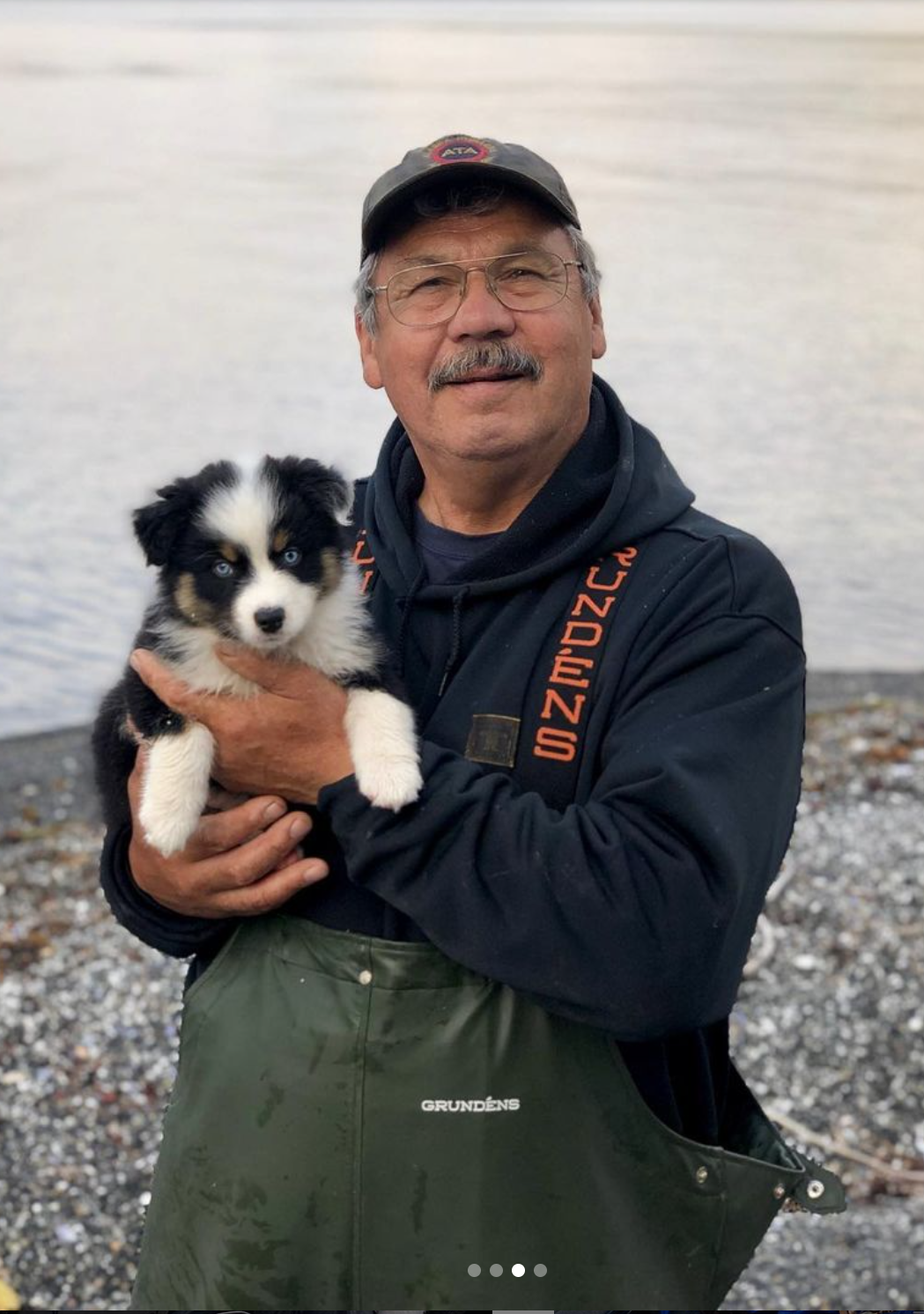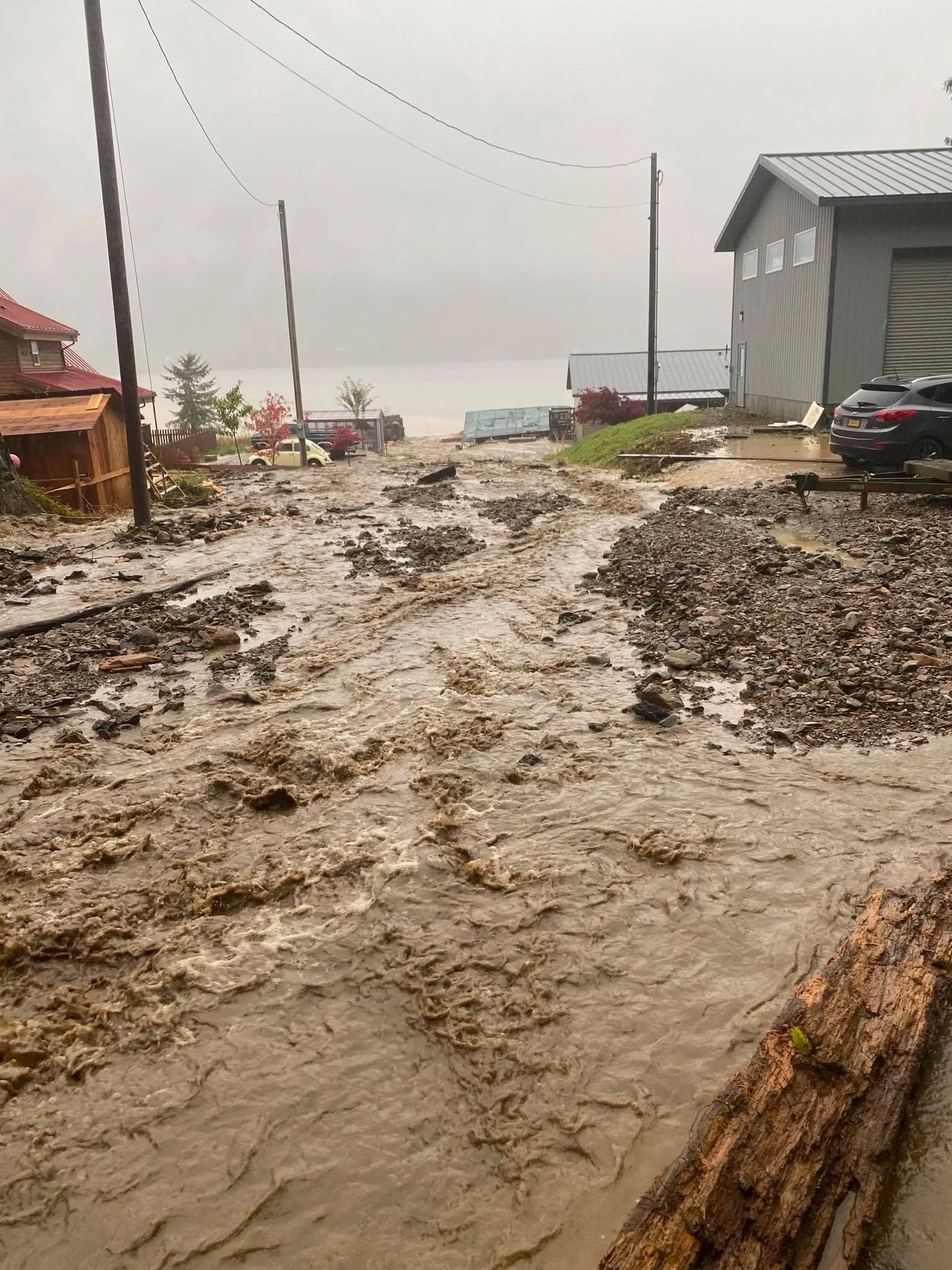Mike Douville
“When I was in first grade, in 1954, we moved to Edna Bay. My stepfather worked down on the water, making rafts to deliver trees to the pulp mill. Edna Bay was one of the first big logging camps. We had a one-room schoolhouse with one teacher for all eight grades. As a kid on Prince of Wales, I saw big, perfect spruce. It was amazing how fast it was harvested. In those days they didn’t build roads. They mostly used the salmon streams to clear up and down, because it was open. Sometimes they did it when there were salmon in there.
I watched this whole thing crash down in less than my lifetime. What old growth we have left, we need to preserve. It’s habitat for deer in particular, but everything else, too — wolf, bear. But it seems like there’s a considerable effort to cut the last of it. They just can’t seem to stop. There’s places I hunt, and you can’t go there anymore. The trees are what we call dog hair. You can’t crawl through it, let alone get a deer.
It’s going to take a couple hundred years for most of this forest to recover and become a forest again. It makes it hard on the deer in particular, because there’s no more winter habitat.
People come to POW and they think this is normal. They look at all this logging and the second growth, and it’s not a shock to them. To me, all I see is damage. It makes sense to save the little we have left until the island has a chance to recover.
People here — 97 percent of testimony was against stripping Roadless protections for the Tongass. It just got crammed down our throat. It was really frustrating to have our voices not mean anything, and to have all that effort bear no fruit. With old-growth clearcutting, there’s no rainbow with a pot of gold at the end of it.”
— Mike Douville, lifelong Prince of Wales fisherman, hunter and trapper
“When I was in first grade, in 1954, we moved to Edna Bay. My stepfather worked down on the water, making rafts to deliver trees to the pulp mill. Edna Bay was one of the first big logging camps. We had a one-room schoolhouse with one teacher for all eight grades. As a kid on Prince of Wales, I saw big, perfect spruce. It was amazing how fast it was harvested. In those days they didn’t build roads. They mostly used the salmon streams to clear up and down, because it was open. Sometimes they did it when there were salmon in there.
I watched this whole thing crash down in less than my lifetime. What old growth we have left, we need to preserve. It’s habitat for deer in particular, but everything else, too — wolf, bear. But it seems like there’s a considerable effort to cut the last of it. They just can’t seem to stop. There’s places I hunt, and you can’t go there anymore. The trees are what we call dog hair. You can’t crawl through it, let alone get a deer.
It’s going to take a couple hundred years for most of this forest to recover and become a forest again. It makes it hard on the deer in particular, because there’s no more winter habitat.
People come to POW and they think this is normal. They look at all this logging and the second growth, and it’s not a shock to them. To me, all I see is damage. It makes sense to save the little we have left until the island has a chance to recover.
People here — 97 percent of testimony was against stripping Roadless protections for the Tongass. It just got crammed down our throat. It was really frustrating to have our voices not mean anything, and to have all that effort bear no fruit. With old growth clearcutting, there’s no rainbow with a pot of gold at the end of it.”
— Mike Douville, lifelong Prince of Wales fisherman, hunter and trapper
“In October on POW we had these heavy rains, and the water comes rushing off the hills because the old growth isn’t there to slow it down. Young growth doesn’t slow water like the big trees do. So we’ve had landslides, and all kinds of problems. That’s because of cutting the trees down in Craig, and many other places. And that, of course, has an effect on the salmon streams. Those things are rushing and raging like they’ve never done before. It washes the eggs out of the creek bottoms. Nothing good can come of these high water events.”
— Mike Douville, lifelong Prince of Wales fisherman, hunter and trapper







